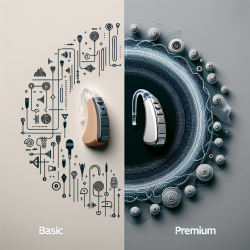Introduction
The transition from ICD-10 to ICD-11 marks a significant advancement in the diagnostic accuracy of impulse control disorders and behavioral addictions. According to the recent study published in the Journal of Behavioral Addictions, the ICD-11 outperforms its predecessor in diagnosing these conditions. This blog aims to guide practitioners on how to leverage these findings to enhance their diagnostic skills and improve patient outcomes.
Key Findings from the Study
The study involved 1,090 mental health professionals (MHPs) from the WHO's Global Clinical Practice Network, who evaluated case vignettes using both ICD-10 and ICD-11 guidelines. The results were compelling:
- Improved Diagnostic Accuracy: ICD-11 showed superior accuracy in diagnosing impulse control disorders and behavioral addictions, particularly for new or revised diagnoses such as compulsive sexual behavior disorder (CSBD), intermittent explosive disorder, and gaming disorder.
- Better Differentiation: The ICD-11 guidelines provided clearer distinctions between pathological and non-pathological behaviors, reducing the risk of over-diagnosis.
- Enhanced Clinical Utility: MHPs reported greater ease of use, confidence, and clarity with ICD-11, especially for conditions that underwent major revisions.
Practical Implications for Practitioners
For practitioners, these findings underscore the importance of adopting ICD-11 in clinical practice. Here are some steps to consider:
- Training and Education: Invest in training programs to familiarize yourself with the new diagnostic criteria. Understanding the nuances of ICD-11 will enhance your diagnostic precision.
- Utilize Validated Tools: Incorporate validated assessment tools like the CSBD-19 or CSBD-7 scales, which align with ICD-11 requirements, to screen for compulsive sexual behavior disorder.
- Focus on Functional Impairment: Emphasize the role of functional impairment in distinguishing between high involvement and pathological behavior, particularly for gaming disorder.
Encouraging Further Research
While ICD-11 represents a significant improvement, the study highlights areas for further research and refinement. Practitioners are encouraged to contribute to ongoing research efforts by:
- Participating in Field Studies: Engage in field studies to provide feedback on the ICD-11 guidelines, helping to refine diagnostic criteria and improve clinical utility.
- Exploring Comorbidities: Investigate the co-occurrence of impulse control disorders with other mental health conditions to better understand their interrelationships and inform treatment approaches.
Conclusion
The transition to ICD-11 offers an opportunity for practitioners to enhance their diagnostic accuracy and improve patient outcomes. By embracing the new guidelines and participating in further research, MHPs can play a crucial role in advancing the field of mental health. To read the original research paper, please follow this link: Mental health professionals' use of the ICD-11 classification of impulse control disorders and behavioral addictions: An international field study.










